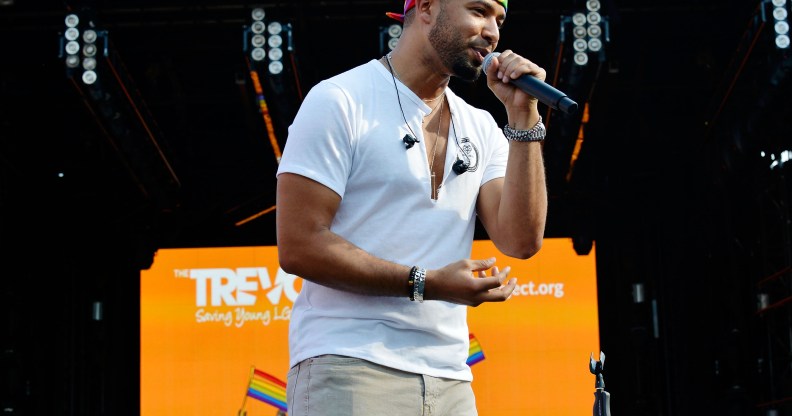Jussie Smollett, Bruce McArthur and the dangers of being gay and a racial minority

Empire actor Jussie Smollett leaves Cook County jail after posting bond on February 21, 2019 in Chicago, Illinois. (Nuccio DiNuzzo/Getty)
The two stories broke within an hour of each other: First, Bruce McArthur, the Toronto serial killer who killed eight men with links to the city’s gay village, pleaded guilty to his heinous crimes. Then came the news that Jussie Smollett—the star of Fox’s Empire—had been attacked in what police are investigating as a hate crime.
The details of the attack on Smollett are chilling. Racist and homophobic epithets were allegedly hurled at the actor. He had bleach poured on his face. And, evoking the horrors of America’s historic treatment of black people, a rope was wrapped around his neck—essentially a noose.
These two stories are separate but they reflect a stark reality for non-white people in the LGBT+ community: Being out can be a matter of life and death for us.
The images of white gay couples celebrating marriage equality, or white gay people marching jubilantly at Pride parades, might make it seem like equality has been achieved. But far from it. True equality is a long way off when gay people of colour continue to be ostracised within their communities, and are attacked by others for the colour of their skin.
What must Smollett have been thinking and feeling in the early hours of Tuesday morning when his (reportedly white) assailants denigrated him between blows, asking him if he was that “faggot Empire n***er?” Both these words, through their bitter history, are used to dehumanise their recipient, to have the equivalent effect of a dagger through the heart. Combined in the same moment of hatred, how small must Smollett have been made to feel? Stripped of his fame, philanthropic achievements and acting accolades all in one moment.
“I shudder to think that a man could tell that I was insecure or an ‘outsider’ and prey on that.”
I’ve been called a “black c**t” and I can tell you that that I have shrivelled into myself. In one moment, I have felt ripped of all my personality, my validity as a contributing member of society, and judged solely because of the colour of my skin.
In the McArthur case, it’s telling that the majority of his victims had brown skin and ethnic-sounding names, like me. Seven of the eight victims had ties to Toronto’s gay village, home of its LGBT+ community. Some had emigrated to Canada from their homelands—perhaps to get away from intolerant views on homosexuality that still prevail in countries in South Asia.
Many of my South Asian relatives consider homosexuality to be an abomination—an aberration from god’s design—and, so, much of my life has been spent sitting silently as they shouted at a gay kiss on television, or casually dropped the “faggot” bomb when the opposing team scored a goal.
A friend of McArthur’s first known victim Skandaraj Navaratnam, who disappeared in 2010, said Navaratnam “came [to Canada] from so much heartache in Sri Lanka.” Karen Fraser, on whose property landscaper McArthur disposed of the dismembered bodies of his victims, recalls meeting at least two of them. She described one as being “very lost, obviously not adapting to Canada very quickly.”
“I’ve been called a “black c**t” and I can tell you that that I have shrivelled into myself.”
McArthur, it seems, targeted men marginalised in an already marginalised community. Men whose disappearances, perhaps, the police wouldn’t expend their resources investigating—after all, brown and black people are usually the villains in the police narrative. Eight men disappeared between 2010 and 2017, but McArthur was not arrested until last year.
For a brown person like me, that is chilling.
That could have been me. I, too, ventured out of the confines of my own community and visited gay spaces, sometimes with friends, sometimes alone, trying to find a place that I belonged. I shudder to think that a man could tell that I was insecure or an ‘outsider’ and prey on that. And if I were to go missing, would the police care?
A minority within a minority is a scary place to be.

